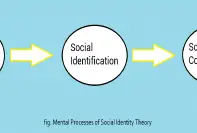In simple words, Attribution refers to explanation of behaviors whether others or our own. It is an important aspect of social psychology. Different psychologists have come up with different theories or models of attribution over the years.
[Related Reading: Attribution Theory]
What remains constant is that all of the theories revolve around two core types of attribution. They are:
- Dispositional Attribution
- Situational Attribution
We are going to discuss about Situational Attribution in this post.
Definition
The tendency of assigning the cause or responsibility of a certain behavior or action to outside forces rather than international characteristic is called Situational Attribution. We often explain our new actions and behavior using the environmental or situational features, something that is beyond our control.
Every form of explanation we come up with that focuses on the environment in order to explain behavior can also be referred as situational attributes.
Examples
Example 1: Suppose a student fails her examination and her parents assume that the questions were difficult than usual, or she had a terrible teacher. These are situational attributions.
Example 2: John slips and drops beer on Rachel’s new carpet. Rachel doesn’t blame John. Instead, Rachel assumes that John slipped because the carpet was uneven. Rachel is making situational attribution.
In the Example 1, the student’s failure is not attributed to her inability to study or any of her personality traits. Instead, her parents made situational attributions, situations which are not in control of the student.
In the Example 2, John’s personality or personal weakness is not taken into account. Rachel believes that it was because of the uneven carpet rather than John’s carelessness.




